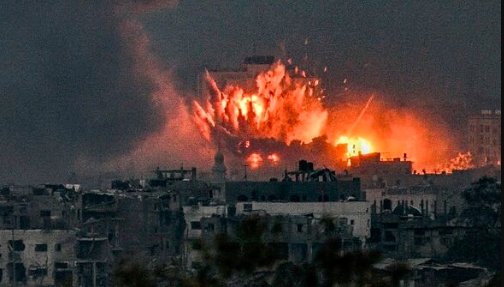The latest round of violence between Israel and Hamas has raised the specter of a wider regional conflict that could drag in major powers and destabilize the Middle East. Here are some of the factors that could escalate the situation and the implications for the world.
The refugee crisis and Egypt’s role
One of the immediate humanitarian consequences of the Israeli bombardment of Gaza is the displacement of thousands of Palestinians who have lost their homes or fled for safety. Many of them are seeking refuge in neighboring Egypt, which shares a border with Gaza and has a peace treaty with Israel. However, Egypt is reluctant to open its borders to a large influx of refugees, fearing the security and economic repercussions. Egypt has also been accused of complicity in the Israeli blockade of Gaza, which has contributed to the dire living conditions and lack of basic services in the enclave. Egypt’s role as a mediator between Israel and Hamas is also complicated by its own domestic politics and regional rivalries.
The West Bank uprising and Hezbollah’s threat
Another flashpoint in the Israel-Palestinian conflict is the West Bank, where protests against Israel’s occupation and settlement expansion have turned violent in recent weeks. The Palestinian Authority (PA), which governs parts of the West Bank, has been criticized by many Palestinians for its perceived weakness and corruption, as well as its security coordination with Israel. Some Palestinians have called for the overthrow of PA President Mahmoud Abbas, who has postponed the first elections in 15 years. The unrest in the West Bank could also trigger a response from Hezbollah, the Iran-backed Lebanese militant group that fought a war with Israel in 2006.

Hezbollah has a massive arsenal of rockets that could target Israel from across the border, as well as a network of allies and proxies in Syria, Iraq, Yemen, and elsewhere. Hezbollah’s leader Hassan Nasrallah has warned that any Israeli attack on Jerusalem or Gaza would be met with resistance from “the axis of resistance”, referring to Iran and its allies.
The Iran factor and Biden’s dilemma
The Gaza crisis also has implications for the nuclear negotiations between Iran and the United States, which are aimed at reviving the 2015 deal that limited Iran’s nuclear activities in exchange for sanctions relief. The deal was abandoned by former President Donald Trump, who imposed a “maximum pressure” campaign against Iran, which responded by increasing its uranium enrichment and supporting its regional allies. President Joe Biden has expressed his willingness to rejoin the deal, but faces opposition from Israel, which considers Iran an existential threat and has reportedly carried out covert attacks on Iranian nuclear facilities and scientists. The Gaza crisis could further strain the US-Israel relationship, as well as complicate Biden’s efforts to balance his support for Israel’s security with his commitment to human rights and diplomacy.
The Gaza crisis is not only a humanitarian tragedy, but also a geopolitical challenge that could have far-reaching consequences for the Middle East and beyond. As former Israeli Prime Minister Ehud Barak warned, recalling previous wars that involved major powers: “Remember Afghanistan. Remember Iraq. Remember Lebanon.” Will we soon add “Remember Gaza” to that list?


















